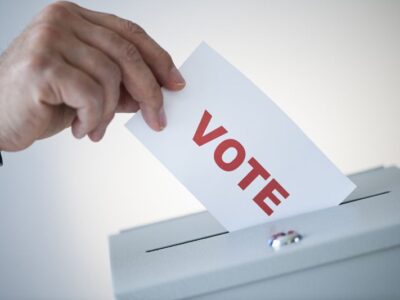Climate Politics and Electoral Realignment
Legal Planet: Environmental Law and Policy 2024-11-21

There is a growing evidence that U.S. political alignments are shifting. Basically, Democratic support has eroded in core cities , a bit among Black voters, and more among Latino voters. These trends have been offset by the movement of some groups of white voters and suburban voters to the Democrats. The net result was to give Republicans a small edge in the election, though it was hardly a massive wave.
The changes are probably most dramatic in terms of social class (education and income). The GOP now has a solid following among working class voters (especially whites), while college graduates and those with above-average incomes have shifted to the Democrats. How will this impact climate politics?
I’ll start with one of the most likely effects – an increased rate of success for advocates of climate actions in off-year and down-ballot races. Then I’ll talk about some more speculative effects.
Shifts in patterns of electoral successes for candidates supporting climate action.
Higher income, better educated voters have a higher likelihood of following political developments, voting, and donating to campaigns. This could reverse the conventional wisdom in politics about who benefits from making voting more difficult (such as limiting voting by mail) or restricting campaign contributions.
These effects would tend to give an advantage to Democrats (and hence believers in climate action) in non-presidential elections — meaning the off-year and down-ballot elections that low-propensity voters are likely to ignore. It’s not hard to imagine an outcome in which elected officials other than the president are more likely to favor climate action .
Unclear effects on political polarization over climate change.
Globally, higher levels of education go with greater support for climate action. The better educated are more likely to view climate change as a serious problem and support climate action. Thus, movement of more educated people toward the Democrats could strengthen Democratic commitment to climate action but could also push the GOP in the opposite direction as it accumulates less-educated voters.
That shift might be countered by the movement of Black and Latino voters to the GOP, since members of those groups are more likely to view climate change as a critical threat. On balance, it’s hard to know how this will play out.
Effects on the geography of climate action.
Over time, the weakening of Democratic dominance in core cities could erode what is now strong urban commitment to climate action. At this point, however, that shift hasn’t been enough to have a noticeable effect. And because fossil fuels are tied to urban air pollution, city residents could be more favorable toward renewables regardless of party.
Inner-ring suburbs, on the other hand, could become increasingly active in the climate arena as we leave the era of GOP dominance there. This should be especially likely in suburbs with higher percentages of college-educated voters..
Effects on environmental justice issues.
Blurring of racial lines in political affiliation impact politicians’ views of environmental justice issues. That would mean that Democrats would be la little less responsive to those issues than today while Republicans would be more so. Basically, if their supporters are upset about toxic waste in their neighborhoods, Republican politicians may take more of an interest. Ideology could prevent or at least slow such changes. Still, it seems possible that there would be at least some softening of partisan divisions on environmental justice issues. The question will be how much, and that probably depends on the ultimate magnitude of shifts between parties by ethnic groups.
Caveats
It would be foolish to be overly confident about these predictions. Political life is just too full of surprises. There obviously could be other forces at work apart from these trends in the electorate. It’s also possible that the electoral trends I’ve discussed will peter out or even reverse themselves. They might simply be blips, perhaps driven by attitudes toward Trump that would become less relevant when he leaves the political scene.
Many of the possible impacts are admittedly speculative. The one that seems most solid is that we’ll see greater support for climate policies and candidates in off-year elections and down-ballot races. This could lead to an increased emphasis on state and local climate action.